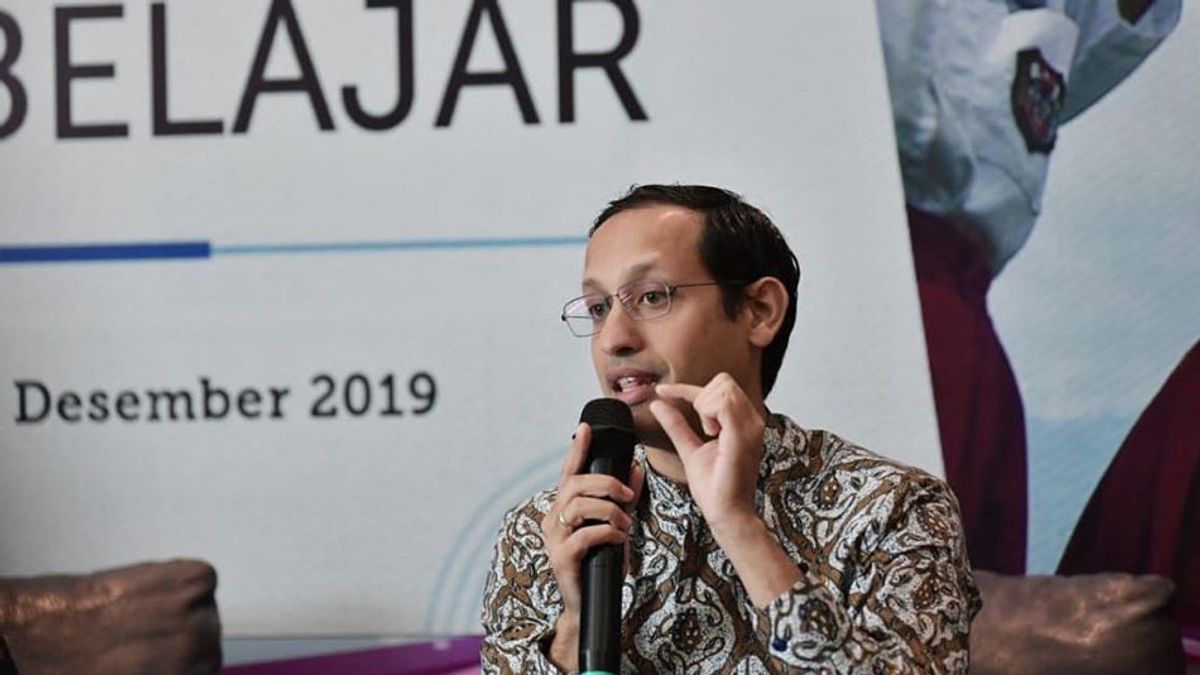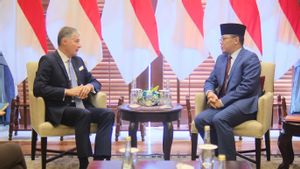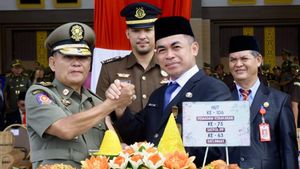JAKARTA - Minister of Education and Culture (Mendikbud) Nadiem Makarim explained the replacement system for the National Examination (UN) through competency assessments and character surveys. This system is through a thorough study of studies in various countries that have left the UN system.
"Everyone accesses purely reasoned competence. That means, content rather than competency assessment is very difficult to share," he said, during a working meeting with Commission X DPR, at the Parliament Complex, Senayan, Jakarta, Thursday, December 12.

According to Nadiem, this system is different from the National Examination which emphasizes on students the ability to memorize which is only done at the end of the level by testing various subjects. He explained, the National Examination made students' reasoning power not develop because it was only value-oriented.
"Three hours of taking a multiple choice haunted him for the rest of his life. It is not fair," he explained.
Meanwhile, said Nadiem, by assessing the competence of students, they are required to analyze based on the information they get. The emphasis is on two aspects. Literacy skills and numeracy skills.
Nadiem explained that literacy is not just the ability to read and then memorize. However, it is more about the ability to understand the concept of reading. Meanwhile, numeration is not just the ability to count. However, the ability to apply the concept of arithmetic in a real context.
Two aspects of literacy and numeracy skills, said Nadiem, are fundamental aspects in understanding all lessons, not memorizing. Where all subjects can only be achieved by understanding the logic.
"So this is a core competency to be able to learn whatever it is. Can study physics, social studies, mathematics, languages, literature and history," he explained.
Meanwhile, said Nadiem, the National Examination only assessed students from the memory or rote aspect. Students' reasoning power is based on what is found everyday. Meanwhile, the experiences he found while in school were not channeled.
"The question is sir, what is the competency assessment? Please be assured that the Ministry of Education and Culture will not make a decision like this without any basis, without any standards," he said.
Nadiem explained, the application of this competency assessment has been implemented in various countries. The Ministry of Education and Culture collaborates with the Organization for Economic Co-operation Development (OECD) as the institution that creates the Program for International Student Assessment (PISA).
"We have drawn inspiration from various kinds of self-assessments from all over the world, not only in Indonesia," he explained.
Children do not need to be good at memorizing
Nadiem explained that today's progress requires children to understand the material, not memorize it. The abolition of the UN is also in the background because of that.
"We don't need children who are good at memorizing, sir. I'm sorry to be honest, the world doesn't need children who are good at memorizing," he said.
According to Nadiem, he was saddened by the reactions of various parties who said that the experiment was not something in education. Though experiments are part of learning.
"Whereas the only way to innovate is to do all kinds of small experiments in each school. I have to talk like this honestly. This is what should happen. Teachers must be given the freedom to try new things, and without that we will not progress as a leader. country, that's called innovation, "he said.
The English, Chinese, Japanese, Arabic, and French versions are automatically generated by the AI. So there may still be inaccuracies in translating, please always see Indonesian as our main language. (system supported by DigitalSiber.id)













